Animals
-
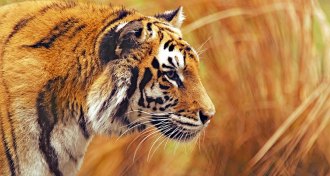 Animals
AnimalsBig cats hunt livestock when wild prey is scarce
Lions, tigers and other big cats tend to hunt livestock only after their wild prey has dropped in availability, a new study shows.
-
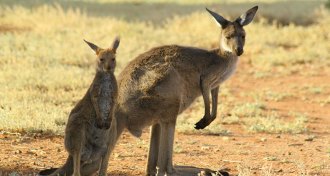 Climate
ClimateKangaroo farts may not be so eco-friendly after all
Kangaroos fart methane, but not much thanks to the metabolism of gut microbes
-
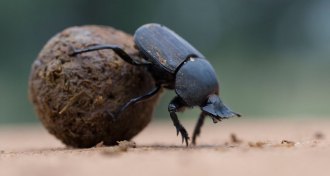 Animals
AnimalsColor of light sets dung beetles straight
Dung beetles may rely on green and ultraviolet colors in the sky to help orient themselves.
By Susan Milius -
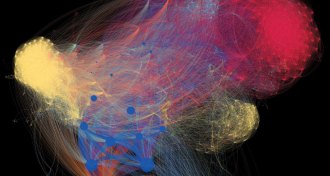 Animals
AnimalsDiagram captures microbes’ influence across animal kingdom
A network diagram of animal species shows that many microbes living in humans also make themselves at home in dogs, pigs and cattle.
By Meghan Rosen -
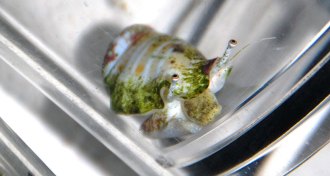 Animals
AnimalsHunchbacked conchs jump at the smell of danger
Hunchbacked conchs are among the most vigorous of snailkind’s few jumpers.
By Susan Milius -
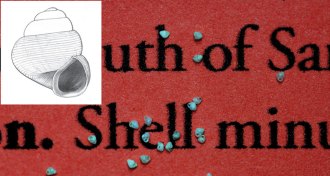 Animals
AnimalsWorld’s smallest snail record broken again
Snails may not be speedy, but itty-bitty snail shells found in Borneo are breaking a size record at a breakneck pace.
By Susan Milius -
 Animals
AnimalsJust when you thought snails couldn’t get any smaller…
Snails may not be speedy, but itty-bitty snail shells found in Borneo are breaking a size record at a breakneck pace.
By Susan Milius -
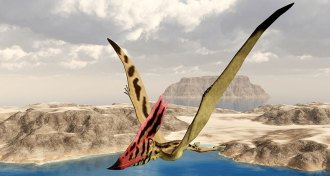 Animals
Animals‘On the Wing’ chronicles origins of flying animals
In "On the Wing," a biomechanicist reviews how animals took to the air.
By Sid Perkins -
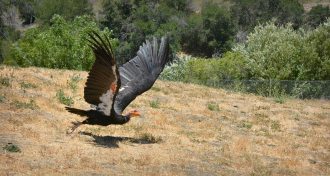 Animals
AnimalsWildfires are an unexpected threat to California condors
Lead poisoning remains a threat to California condors, but a new review finds that wildfires may also be a danger to the big birds.
-
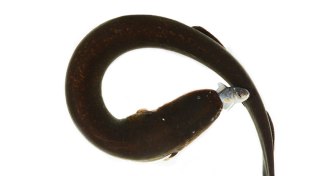 Life
LifeHow electric eels put more zip in their zap
With feisty prey, an electric eel curls its tail to intensify shocks and exhaust prey.
By Susan Milius -
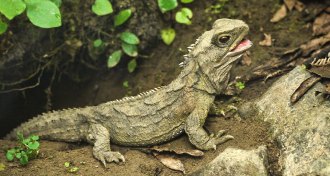 Life
LifeRare reptile holds clue to penis evolution
Preserved Victorian specimens reveal budding embryonic penis that disappears before adulthood.
By Susan Milius -
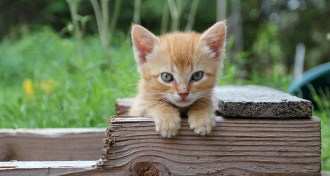 Animals
AnimalsCat-versus-virus arms race goes back millennia
Researchers have found evidence of an ancient arms race between Felis silvestris catus, the species familiar today as the domestic cat, and feline immunodeficiency virus.